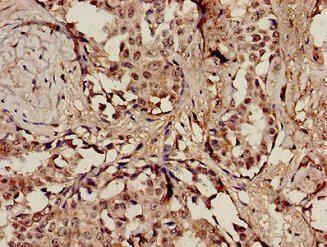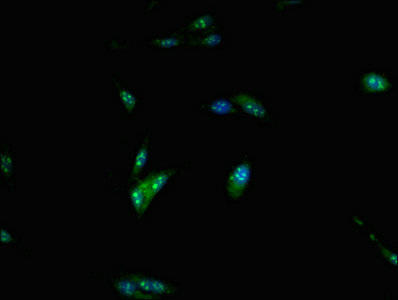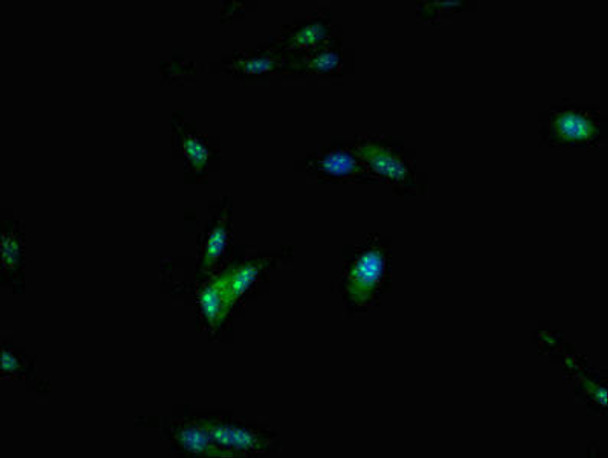| UniProt Protein Function: | POLE: Participates in DNA repair and in chromosomal DNA replication. Belongs to the DNA polymerase type-B family.Protein type: Nucleotide Metabolism - purine; Nucleotide Metabolism - pyrimidine; EC 2.7.7.7; DNA replication; DNA repair, damage; TransferaseChromosomal Location of Human Ortholog: 12q24.3Cellular Component: nucleoplasm; epsilon DNA polymerase complex; cytoplasm; plasma membrane; nucleusMolecular Function: DNA binding; zinc ion binding; 4 iron, 4 sulfur cluster binding; nucleotide binding; DNA-directed DNA polymerase activity; chromatin bindingBiological Process: DNA replication initiation; in utero embryonic development; DNA repair; base-excision repair, gap-filling; telomere maintenance via semi-conservative replication; DNA synthesis during DNA repair; nucleotide-excision repair; transcription-coupled nucleotide-excision repair; telomere maintenance via recombination; mitotic cell cycle; nucleotide-excision repair, DNA gap filling; DNA replication; telomere maintenance; G1/S transition of mitotic cell cycleDisease: Colorectal Cancer, Susceptibility To, 12; Facial Dysmorphism, Immunodeficiency, Livedo, And Short Stature |
| UniProt Protein Details: | |
| NCBI Summary: | This gene encodes the catalytic subunit of DNA polymerase epsilon. The enzyme is involved in DNA repair and chromosomal DNA replication. Mutations in this gene have been associated with colorectal cancer 12 and facial dysmorphism, immunodeficiency, livedo, and short stature. [provided by RefSeq, Sep 2013] |
| UniProt Code: | Q07864 |
| NCBI GenInfo Identifier: | 62198237 |
| NCBI Gene ID: | 5426 |
| NCBI Accession: | NP_006222.2 |
| UniProt Secondary Accession: | Q07864,Q13533, Q86VH9 |
| UniProt Related Accession: | Q07864 |
| Molecular Weight: | 261,518 Da |
| NCBI Full Name: | DNA polymerase epsilon catalytic subunit A |
| NCBI Synonym Full Names: | polymerase (DNA directed), epsilon, catalytic subunit |
| NCBI Official Symbol: | POLE |
| NCBI Official Synonym Symbols: | FILS; POLE1; CRCS12 |
| NCBI Protein Information: | DNA polymerase epsilon catalytic subunit A |
| UniProt Protein Name: | DNA polymerase epsilon catalytic subunit A |
| UniProt Synonym Protein Names: | DNA polymerase II subunit A |
| Protein Family: | Mycosin |
| UniProt Gene Name: | POLE |
| UniProt Entry Name: | DPOE1_HUMAN |






